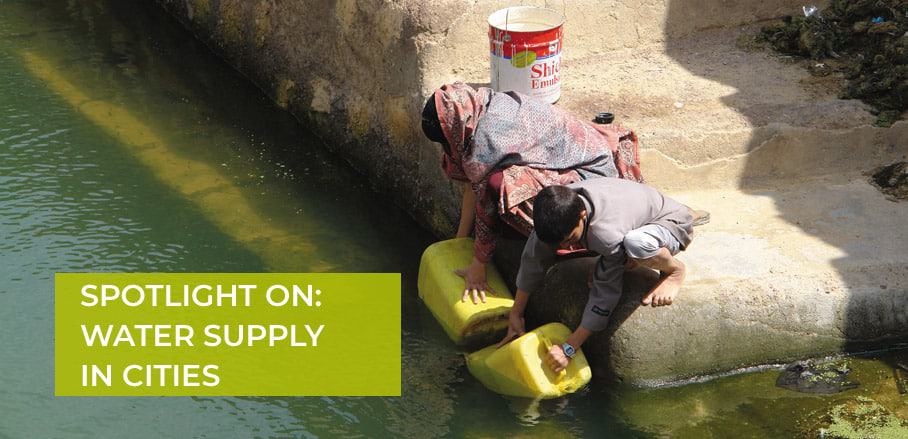Managing Water in Secondary Cities: Interview with Mathew Kurian
By URBANET
As World Water Day approaches, URBANET interviewed Mathew Kurian of UN University about managing water supplies in secondary cities. [inlinetweet prefix=”” tweeter=”urbanet_info” suffix=””]Although often overshadowed by megacities, secondary cities face slightly different—but just as significant—water challenges as their larger neighbours[/inlinetweet]. Kurian argues that secondary cities could be important laboratories for innovative financing mechanisms, but that we must first disrupt the entrenched dis-incentives that promote business as usual.
In light of World Water Day, what are the main opportunities in managing water supply in secondary cities?
Mathew Kurian: Elinor Ostrom, the Nobel Prize-winning political scientist, once said, “It is tragic indeed that water supplies are generally more abundant now than half a century ago, but that marginalised groups and households living in megacities around the world still have little access to water supply and sewer networks in their everyday environments.” [inlinetweet prefix=”” tweeter=”urbanet_info” suffix=””]As incomes rise, especially in emerging economies, it has become possible for people to have access to a mobile phone but lack access to adequate, reliable, and affordable water supplies.[/inlinetweet] Innovative financing mechanisms that deliver clearly verifiable outcomes, such as access to safe water supplies, offer an important opportunity in secondary cities. This opportunity is especially appealing because secondary cities tend to have lower levels of infrastructure, but due to expanding economic activities and rising incomes, they hold great promise.
Which challenges with regard to water supply do secondary cities face in comparison to megacities?
Mathew Kurian: Secondary cities—due to the fact that they lie in the shadow of megacities—tend to have income streams coming from multiple sources. In many cases, there are poor regulation and standards of economic activity that are the source of income from multiple sources. Yet policy or programme interventions that aim to improve regulations fall short of expectations because they do not fully understand the prevailing dis-incentives that support “business as usual.” For example, while municipal wastewater reuse projects in secondary towns may promote income diversification, they are ultimately counter-productive due to the increased healthcare costs that can result from the use of untreated wastewater. [inlinetweet prefix=”” tweeter=”urbanet_info” suffix=””]It is crucial to examine the role of central transfers to local governments and the impact these transfers have on entrenching the business-as-usual strategy for water supply in secondary towns[/inlinetweet].
Regarding implementation of the SDGs, are there success stories from a city that has managed to overcome the challenges you have mentioned above? Please elaborate and name an example.
Mathew Kurian: It would be premature to contemplate a success story when the SDG monitoring methodologies for water-related goals are not yet finalized. However, some of our recent work with authorities in the State of Sao Paulo in Brazil indicates there is a need to acknowledge the importance of water scarcity in designing policies, projects, and programs that target sustainable water supplies in secondary towns. The Nexus Observatory project at UNU-FLORES allowed us to examine the role of composite indices as a mechanism that would support integrative monitoring of environmental, institutional and social (access/equity) outcomes across countries. Composite indices while allowing for cross-country comparisons support a search for incentives that would promote infrastructure expansion that is focussed on delivering safe, reliable and adequate water supplies in secondary towns. Implementation of the above measures requires a markedly different approach to capacity building- one that is focussed on pillars of country consultation and partnerships with local training institutes and universities and with the objective of creating an architecture for bottom-up monitoring of the SDG’s.
- Managing Water in Secondary Cities: Interview with Mathew Kurian - 16. March 2018
